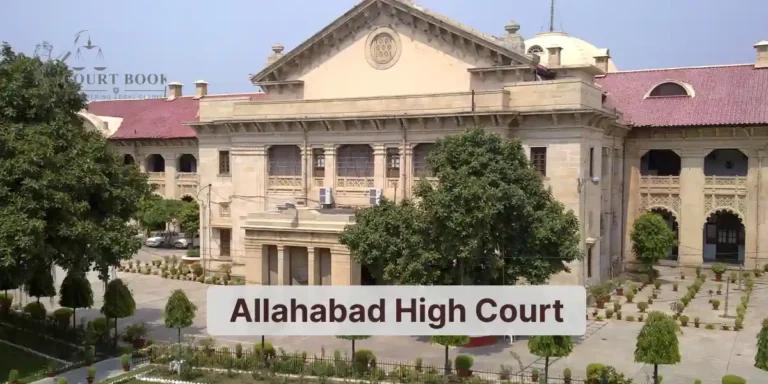Taking serious note of an advocate being allegedly placed under "house arrest" during an administrative judge’s visit, the Allahabad High Court has made it clear that the matter will not be treated as routine. The Court stated that it will examine the issue on merits to uphold the liberty of individuals under the rule of law.
"We would like to make it clear that any attempt at concealing and suppressing facts would neither be appreciated nor would be allowed. The Court will go into the merits of the issue as liberties of individuals cannot be allowed to be curtailed in a country governed by rule of law. This is more so when the infraction of such liberty is on account of a purported visit of the Administrative Judge of this Court. The matter cannot be allowed to be given a rest as a routine case,"
— observed a bench of Justice Ashwani Kumar Mishra and Justice Donadi Ramesh.
The Court has summoned the Deputy Commissioner of Police (DCP) to appear in person on April 24. The DCP is required to bring all related records and explain the logic behind keeping a 70-year-old practicing advocate under "supervision" during the administrative judge’s visit to Agra District Court.
This issue arose from a petition filed by Advocate Mahtab Singh, who alleged that on November 15, 2024, he was confined to his house for over 10 hours after receiving a Section 168 BNSS notice. The notice was allegedly used to prevent him from meeting the Administrative Judge during the visit.
Earlier, the High Court had already treated the matter as ‘unusual’ and asked the District Judge of Agra to submit a detailed report. The Court had also sought clarification about who directed the police to serve the notice and interfere with the liberty of the petitioner.
In response, the District Judge informed the Court that he had no knowledge of such police action and that no permission was taken from him in this regard. This led the Court to observe:
"We have not heard of an incident in which an advocate is kept under supervision or notices are issued on the apprehension that a cognizable offence could be committed only because 37 year back the petitioner was implicated in a criminal case."
Further, the Court directed the Commissioner of Police (CP), Agra, to submit an affidavit explaining the policy behind such "monitoring and supervision" of an advocate’s movement during the judge's visit. The CP was also instructed to give details about any similar actions taken during previous visits of administrative judges.
Additionally, the Deputy Commissioner of Police (DCP) from the concerned zone was asked to appear in person and clarify whether this police action was part of any general procedure or was a one-off case.
Last week, the Commissioner of Police, Agra, filed an affidavit stating that there were procedural errors in the issuance of the notice and assured the Court that they will act with more caution in the future. He also attached a formal apology with his affidavit.
However, the Court was not satisfied with the response and strongly criticized the attempt to underplay the issue.
"The affidavit has apparently attempted to bury the issue,"
— noted the Court.
In view of this, the bench has reiterated that any suppression of facts will not be tolerated, and the matter will be taken forward based on its legal merit.
The next hearing of the case is scheduled for April 24, when the DCP will appear before the Court along with the necessary records.















